Profiles
-
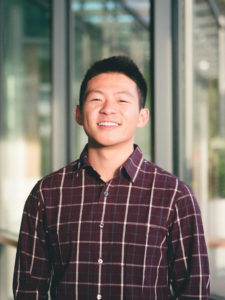
David Mai

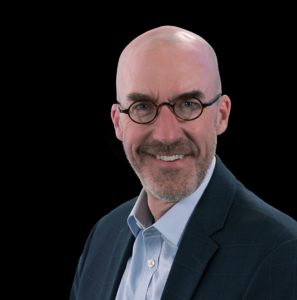
David Shepherd is a Program Manager for the Department of Homeland Security, in its Science and Technology Directorate. He manages projects that help DHS and the interagency understand threats and risks stemming from biological agents and related advances. His projects range from in-depth studies of threats to creating measures to mitigate those risks and threats, with emphasis on efforts to build intergovernmental awareness and understanding. Recently Mr. Shepherd has started projects to bring the government community and the commercial community closer together to build the collaborative means to address 21st century threats, including risks to the bioeconomy. He also manages the Hazard Knowledge Center within DHS S&T’s Probablistic Awareness of National Threats, Hazards and Risks (PANTHR) program, and is S&T’s liaison to the DOD’s Combatting Terrorism Technical Support Office. Mr. Shepherd has been a federal program manager working in threat and risk awareness and reduction for over two decades. He has degrees in electrical engineering, history, and telecommunications.
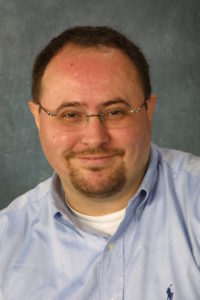
Athanasios (Sakis) Mantalaris is Professor in the W.H. Coulter Department of Biomedical Engineering at Georgia Tech & Emory since August 2018. Prior to his move to Atlanta, he was Professor of BioSystems Engineering in the Department of Chemical Engineering at Imperial College London. He received his PhD (2000) in Chemical Engineering from the University of Rochester. His expertise is in modelling of biological systems and bioprocesses with a focus on mammalian cell culture systems, stem cell bioprocessing, and tissue engineering. He has published over 170 original manuscripts, co-edited one book, and holds several patents with several more pending. He has received several awards including the Junior Moulton Award for best paper by the Institute of Chemical Engineers (IChemE) in 2004. In 2012, he was elected Fellow of the American Institute for Medical & Biological Engineering and in 2013 he was awarded a European Research Council (ERC) Advanced Award. In 2015, he was awarded the Donald Medal by the Institution of Chemical Engineers (IChemE) for his contributions to biochemical engineering.
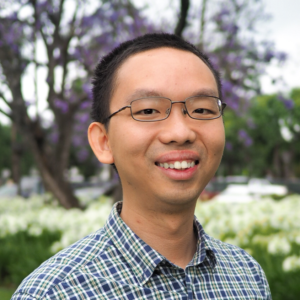
Dr. Xiaojing Gao is an Assistant Professor of Chemical Engineering from Stanford University. He received a B.S. in Biology from Peking University and a Ph.D. in Biology from Stanford University. He received his postdoctoral training from Biology and Biological Engineering at Caltech. His lab tackles fundamental engineering challenges across different levels of complexity, such as (1) protein components that minimize their crosstalk with human cells and immunogenicity, (2) biomolecular circuits that function robustly in different cells and are easy to deliver, (3) multicellular consortia that communicate through scalable channels, and (4) therapeutic modules that interface with physiological inputs/outputs. Their engineering targets include biomolecules, molecular circuits, viruses, and cells, and their approach combines quantitative experimental analysis with computational simulation. The molecular tools they build will be applied to diverse fields such as immunology, neurobiology, and cancer therapy.
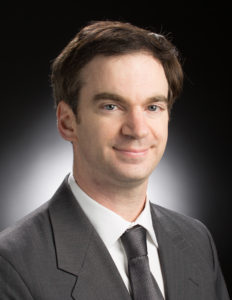
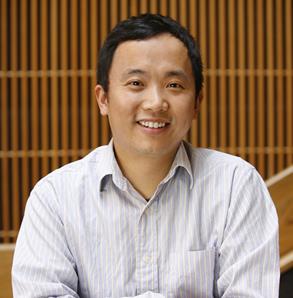
Dr. Yinjie Tang did his BS/MS in chemical engineering at Tianjin University. He obtained his PhD at University of Washington and his research was on kinetic modeling of marine sediment remediation. He did his postdoc at Lawrence Berkeley National Laboratory. He joined Washington University In 2008 and was promoted to full professor in 2018. His research focuses on algal engineering, metabolic flux analysis, and process modeling.
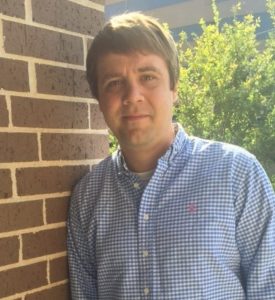
Taylor Ware is an Assistant Professor of Bioengineering at the University of Texas at Dallas. Prior to joining UT Dallas in August 2015, he graduated summa cum laude with his B.S. from the Georgia Institute of Technology (2009) and with his Ph.D. from the University of Texas at Dallas (2013) in Materials Science and Engineering. Taylor completed postdoctoral training (2013-2015) at the Materials and Manufacturing Directorate at the Air Force Research Laboratory. His research interests include biomaterials, liquid crystal materials, living materials, flexible and stretchable electronics, and the interfacing of these technologies. Dr. Ware was a recipient of the National Science Foundation Graduate Research Fellowship (2011), the Air Force Young Investigator Award (2017), and the NSF CAREER award (2018). He is also a member of several professional societies, co-inventor of three awarded patents, and author or co-author of more than 50 scientific publications.
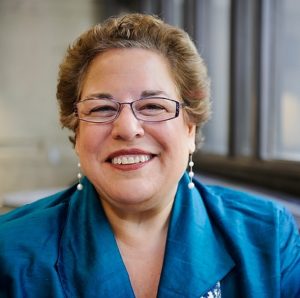
R. Alta Charo (Harvard, BA biology 1979; Columbia, JD law 1982) is a 2019-2020 Berggruen Fellow at CASBS, and the Warren P. Knowles Professor of Law and Bioethics at the University of Wisconsin, writing on medical ethics and biotechnology regulatory policy. In government, she served as a legal analyst for the former congressional Office of Technology Assessment, policy analyst for the US Agency for International Development and senior policy advisor in the FDA’s Office of the Commissioner. She was a member of the National Bioethics Advisory Commission under President Clinton, and the transition team for President Obama. Charo is a member of the National Academy of Medicine, and co-chaired its committee on Guidelines for Embryonic Stem Cell Research and its 2017 committee on Human Genome Editing: Science, Ethics and Governance. At present, she is a member of the World Health Organization’s committee on global governance of genome editing, of the Nuclear Threat Initiative’s Biosecurity Innovation and Risk Reduction project, and of the steering committee of the International Society for Stem Cell Research’s effort to revise and expand its guidelines for ethical research, including research on chimeras and organoids.
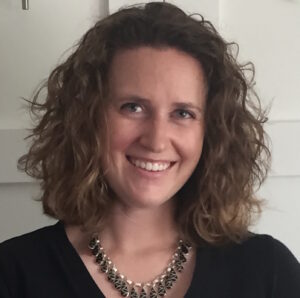
Dr. Eloe-Fadrosh joined the JGI in 2014 to pursue her research interests in microbial ecology and metagenomics. Her current research focuses on leveraging thousands of metagenomic datasets from host-associated and environmental samples to identify novel microbial life and viral diversity. Prior to joining the JGI, she was a Bioinformatics Program Fellow at the Gordon and Betty Moore Foundation as part of the Marine Microbiology Initiative. She conducted her postdoctoral training in human microbiome research at the Institute for Genome Sciences at the University of Maryland School of Medicine. She stepped into the Metagenome Program lead position in 2017. She additionally leads the National Microbiome Data Collaborative, a multi-lab partnership that support microbiome data exploration through a sustainable data discovery platform that promotes open science across a broad and diverse community of researchers, funders, publishers, and scientific societies.

Dr. Ramon Gonzalez is a Professor and Florida World Class Scholar in the Department of Chemical & Biomedical Engineering at the University of South Florida (USF) where he leads the laboratory for Metabolic Engineering and Biomanufacturing. He is the Editor-in-Chief of the Journal of Industrial Microbiology & Biotechnology. Before joining USF, Dr. Gonzalez was a Professor in the Departments of Chemical & Biomolecular Engineering and Bioengineering at Rice University, the Founding Director of Rice’s Advanced Biomanufacturing Initiative, and from 2012 to 2015 served as Program Director with the Advanced Research Projects Agency-Energy (ARPA-E) of the U.S. Department of Energy. Dr. Gonzalez’s work has been published in prestigious scientific journals, including Nature, Nature Biotechnology, Nature Chemical Biology, PNAS, and Science. He is the lead inventor in 25 patents and patent applications, co-founded several biotechnology start-ups, and has given more than 100 invited talks. He is also a member of the editorial boards of Science, Biotechnology Journal, and Metabolic Engineering Communications. Dr. Gonzalez has received numerous recognitions, including elected Fellow of the American Institute for Medical and Biological Engineering, AIChE Division 15c Plenary Lecture, ASM Distinguished Lecturer, SDA/NBB Glycerine Innovation Research Award, and NSF CAREER Award. He obtained a Ph.D. in Chemical Engineering from the University of Chile, an M.S. in Biochemical Engineering from the Pontifical Catholic University of Valparaíso (Chile), and a B.S. in Chemical Engineering from the Central University of Las Villas (Cuba).
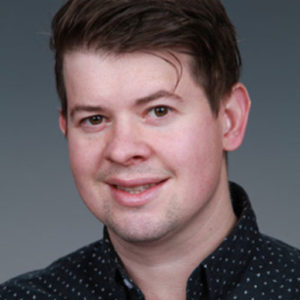
Chuck Smallwood has broad expertise investigating and engineering cellular biochemical mechanisms in diverse biosystems including bacteria, cyanobacteria, fungi, plants, and microalgae. Most cellular membrane transport mechanisms are multicomponent protein assemblies that are complex in their expression, signaling, and energy transduction. In these contexts, our group utilizes various biochemical and genetic techniques to investigate cellular systems for improved drug (i.e. antibiotic) discovery, production of biomaterials, and biotechnology development.
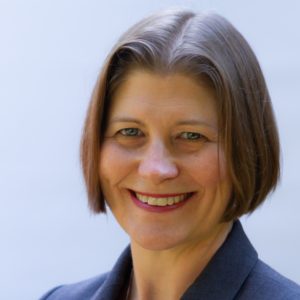
Dr. Lauren Junker is an innovation scout for Industrial Biotechnology Research at BASF. She has been a leader in the Industrial Biotechnology research group at BASF for the past 7 years where her teams research focused on microbiome research for personal care, microbial control solutions for personal care and animal nutrition and fermentation process optimization.
Interested in technologies and partners to accelerate Bioscience research at BASF in the areas of industrial biotechnology including industrial enzyme and biocatalyst engineering, strain engineering for bio-based chemical production, fermentation process optimization and microbiome research.
Previous roles include serving as a microbiologist and clinical research scientist within Johnson & Johnson’s Consumer Products Division. She earned her Ph.D. in Microbiology from Cornell University and did a Postdoctoral Fellowship at the Harvard Medical School where she conducted research on microbial biofilms. At BASF, Dr. Junker and her team of biotechnologists work together with BASF’s Beauty Care Solutions, Care Chemicals to provide efficacious solutions for skin health, focusing on microbiome benefits.

Dr. Sun joined The Artie McFerrin Department of Chemical Engineering in January 2018 as assistant professor. She obtained her Ph. D. in Dr. Wilfred Chen group at University of Delaware and did her postdoc training in Dr. Timothy Lu group at MIT Synthetic Biology Center.
We focus on synthetic biology with advancing designs and applications. Using our expertise in molecular engineering, protein engineering, and microbial consortia engineering, we are developing new techniques to reprogram gut microbiome, protein machinery and biomaterials. Our current application areas include health, environment and energy
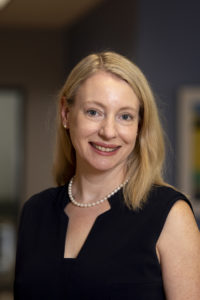
Gigi Gronvall is a Senior Scholar at the Johns Hopkins Center for Health Security and an Associate Professor in the Department of Environmental Health and Engineering at the Johns Hopkins Bloomberg School of Public Health. Dr. Gronvall is the author of the book Synthetic Biology: Safety, Security, and Promise, published in fall 2016 (Health Security Press) and Preparing for Bioterrorism: The Alfred P. Sloan Foundation’s Leadership in Biosecurity. (2013) She is a member of the Novel and Exceptional Technology and Research Advisory Committee (NExTRAC) which provides recommendations to the NIH Director and is a public forum for the discussion of the scientific, safety, and ethical issues associated with emerging biotechnologies. Dr. Gronvall is a member of the Threat Reduction Advisory Committee (TRAC), which provides the Secretary of Defense with independent advice and recommendations on reducing the risk to the United States, its military forces, and its allies and partners posed by nuclear, biological, chemical, and conventional threats. She served as the Science Advisor for the Commission on the Prevention of Weapons of Mass Destruction Proliferation and Terrorism from April 2009 until February 2010. Dr. Gronvall is an Associate Editor of the journal Health Security, and is a Life Member of the Council on Foreign Relations. She was a National Research Council Postdoctoral Associate at the US Army Medical Research Institute of Infectious Diseases (USAMRIID) in Fort Detrick, Maryland. Dr. Gronvall received a BS in biology from Indiana University, Bloomington, worked as a protein chemist at the Memorial Sloan-Kettering Cancer Center and received a PhD from Johns Hopkins University for work on T-cell receptor/MHC I interactions.
Monica is a postdoc at Harvard Medical School in Pam Silver’s lab, and she is using synthetic biology to make new types of mammalian cell devices. She completed a Bioengineering PhD at Georgia Tech in Mark Styczynksi’s lab, where she engineered biosensors that could serve as equipment-free, point-of-care diagnostic tools.
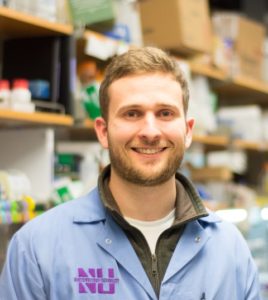
Andrew Hunt is a Postdoc in the Baker Lab at the University of Washington. Andrew works on designing new proteins and developing technologies to measure biological function. Andrew is the Chair of the EBRC In Translation Podcast.
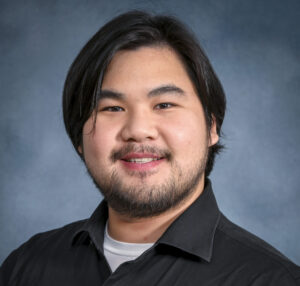
Ice is an Engineering Excellence Postdoctoral Fellow at MIT working with Prof. James J. Collins. Before that, Ice graduated from the University of Washington with a Ph.D. in Molecular Engineering and Sciences under the supervision of Prof. James Carothers and Prof. Jesse Zalatan. He worked on various projects surrounding bacterial engineering, genetic circuits, and biocatalysis, particularly the development of CRISPR tools in non-canonical microbes for various applications, such as Metabolic Engineering and Signaling. Ice is highly engaged with the EBRC and SPA community since 2019, serving in various roles.
Originally from Thailand, Ice graduated with B.Sc. and M.Sc. degrees in Organic Chemistry from Mahidol University before shifting to the world of Engineering Biology, starting as a Research Assistant at the School of Biomolecular Sciences and Engineering, VISTEC, Thailand. Whenever the weather permits, Ice enjoys outdoor activities including hiking, surfing, and climbing. If forced to stay indoors, he will sneak into Thai boxing practice or enjoy cooking Thai cuisine with friends.
See further info about Ice at his personal website: https://theicechol.github.io/
As a graduate student in the Dunlop Lab at Boston University, Michael uses optogenetic tools to study the development of antibiotic resistance. His current work focuses on the design & characterization of light-inducible recombinases in bacteria. He is broadly interested in using synthetic biology to combat antibiotic resistance, and incorporating the DBTL cycle into K-12 and undergraduate education.